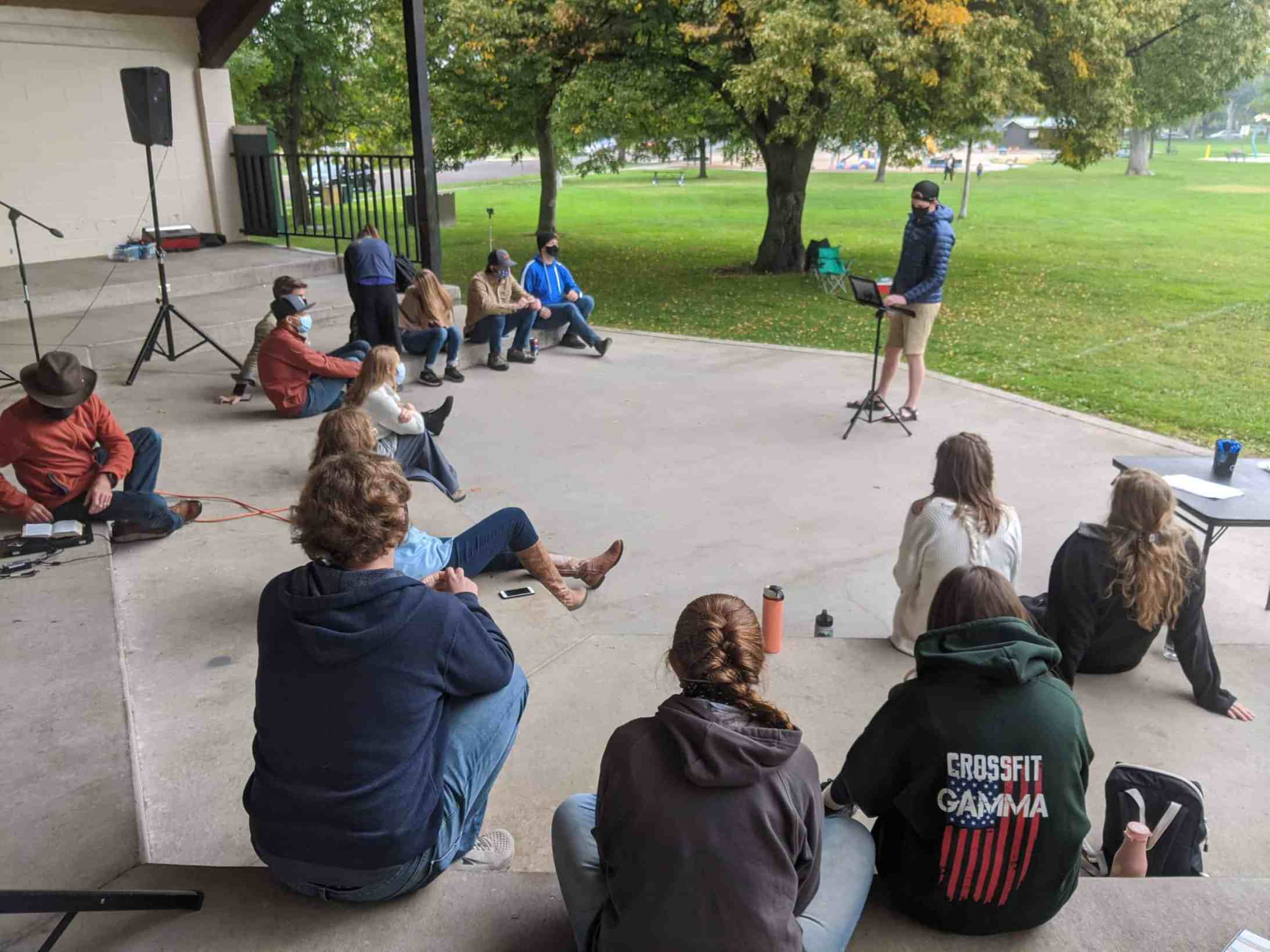A Vision of Fruit
Copyright Fireseed Productions, Duplication permitted
God’s love for you and the students at your school is pretty remarkable. The Scripture says in 2 Peter 3:9 that it is His desire that none of your friends would ever perish, but they would all repent of their sins and come to know Him. If this is God’s desire, how can we tell as many as possible? And when we do, will all of them respond? The answer to that question is found in an illustration Jesus used in Matthew 13:1-23. After you read this passage, discuss these questions: In this Scripture, people’s hearts are described as soil or the ground where the seed was sown.
How would you describe the four types of soil in this story?
1.
2.
3.
4.
In your opinion, what does the seed represent?
Who is the sower, and what does it mean to spread the seed?
If you were a farmer, you would plant seed across all your fields, not just some of them. Why? Because the more soil you cover with seed, the more crop you will have at harvest time. Let’s go back to the story in Matthew 13:1-23 and think about these questions:
How much of the field did the sower plant with seed?
What portion or percentage of the field bore fruit?
Why did some of the field produce, while other parts did not?
What are the four different results from the seed that was scattered?
1.
2.
3.
4.
In this story, the sower was doing a good job spreading his seed across the whole field. But he got different results. Some seed was rejected by the soil. Some sprang up but quickly faded away. Some seed was eventually choked out by weeds. However, a good portion of the soil was ready, and produced a huge crop.
Let’s talk about your school for a moment.
How does the story of the sower, the seed and the soils apply to you and your campus? Give some examples.
When we share Christ with others, can we expect that some will respond? Why?
If not everyone responds to the message of Christ, should that surprise us? Why?
The Bible tells us that our world is made up of spiritual fields, fields of people (see John 4:34-38). A campus is a field of people with clubs, teams, cliques and classes. It is in this field that God is carrying out His rescue operation, using us to spread the seed of His Word to as many parts of the field as we are able. The more Christians who are involved in a campus club or movement, the greater the amount of seed that is spread across the campus – and, the greater the number who will come to Christ. What about those who do not respond when we share Christ? Do we ignore them? In the same way that a farmer cultivates hard soil so that it will receive the seed in the future, we keep loving and relating to our friends who are not responsive. In due time, some of them will put their trust in Christ.
How can you apply this discussion on the “vision of fruit” to your campus ministry?
Has your vision for fruit increased? Explain your thoughts to your group.
What have you decided to do as a result?


